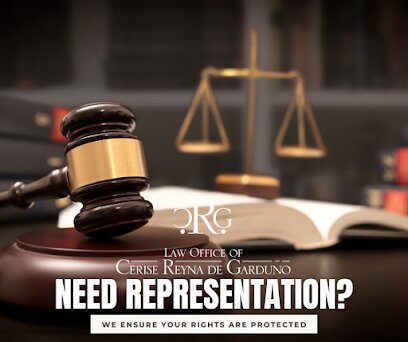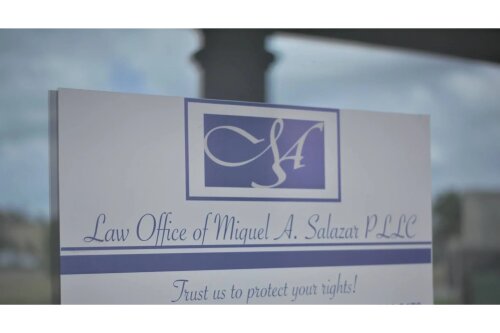Best Motor Vehicle Defect Lawyers in Brownsville
Share your needs with us, get contacted by law firms.
Free. Takes 2 min.
List of the best lawyers in Brownsville, United States
About Motor Vehicle Defect Law in Brownsville, United States
Motor vehicle defect law covers legal claims that arise when a motor vehicle, or a part of it, is unreasonably dangerous because of a manufacturing defect, a design defect, or a failure to warn. In practical terms, this area of law applies when a defect in a car, truck, motorcycle, bus, or a component - such as brakes, airbags, steering, tires, or electronic systems - causes or contributes to an accident, injury, or significant property damage. In Brownsville, Texas, the local process for pursuing a motor vehicle defect claim follows state law, but it also involves local procedures for accident reports, local courts, and county filing rules. Claims can be asserted against vehicle manufacturers, parts suppliers, repair shops, dealerships, or other parties whose conduct or products caused harm.
Why You May Need a Lawyer
Even seemingly simple defect claims can become legally and technically complex. You may need a lawyer if any of the following situations apply:
- Serious injury or wrongful death - Complex causation issues involving multiple potential defect sources - Multiple defendants such as manufacturer, parts supplier, and repair shop - A manufacturer or insurer denies fault or offers a low settlement - You need to preserve evidence that is time-sensitive, like the vehicle or electronic data - You require expert witnesses for accident reconstruction, mechanical analysis, or medical causation - There are federal safety or recall issues intertwined with the claim - You face potential shared fault claims from the other side - You need help navigating statutes of limitations, pleading requirements, and local court procedures
A lawyer experienced in product liability and motor vehicle cases can evaluate liability theories, preserve evidence, coordinate experts, negotiate with insurers and manufacturers, and represent you at trial if necessary.
Local Laws Overview
Below are key legal aspects that are particularly relevant for motor vehicle defect matters in Brownsville, Texas. This overview is for information only and not a substitute for legal advice.
- Types of defect claims - Plaintiffs commonly pursue manufacturing-defect claims, design-defect claims, and failure-to-warn claims. Manufacturing-defect claims assert that a particular vehicle or part left the factory flawed. Design-defect claims assert that the product design itself is unreasonably dangerous even when manufactured correctly. Failure-to-warn claims focus on inadequate instructions or warnings about risks.
- Legal theories - Claims may be brought under strict product liability, negligence, breach of express or implied warranty, and sometimes violations of consumer-protection statutes. Different theories have different proof requirements and remedies.
- Comparative fault - Texas applies a comparative fault approach. If the plaintiff is found partially at fault, a plaintiff’s recovery is reduced by their percentage of fault. However, if a plaintiff’s share of fault exceeds the applicable threshold for recovery, they may be barred from recovering at all. The practical effect is that how blame is allocated can decisively affect recovery.
- Statutes of limitation and timing - Time limits apply for filing claims. Personal injury claims typically require prompt action, and other claims such as breach of warranty or property damage can have different deadlines. There may also be additional procedural deadlines for notifying certain government agencies or for pursuing administrative remedies. Because timing rules can be strict and can vary by claim type, it is important to consult an attorney early.
- Evidence and experts - Product-defect cases often hinge on technical evidence and expert opinions. Common evidence includes the vehicle itself, parts retained after the crash, accident-scene photographs, maintenance and repair records, the vehicle’s event-data recorder, recall and service-bulletin history, and eyewitness statements. Expert testimony is often required to explain how a defect caused the injury.
- Remedies - Plaintiffs can seek economic damages such as medical expenses and repair or replacement costs, non-economic damages such as pain and suffering, and in some cases punitive damages intended to punish particularly harmful conduct. Available remedies and caps on certain damages can vary by claim and by statute.
- Interaction with recalls and government agencies - A prior safety recall or an open investigation by a federal agency does not automatically establish liability, but it can be powerful evidence. Conversely, the absence of a recall does not preclude a successful defect claim. Federal agencies that may be involved include the National Highway Traffic Safety Administration and the National Transportation Safety Board.
Frequently Asked Questions
What counts as a motor vehicle defect?
A defect can be a manufacturing error that affects a single vehicle or batch, a defective design that makes all versions of a model dangerous, or a failure to provide adequate warnings or instructions about foreseeable risks. Defects can involve mechanical parts, electronic systems, software, tires, restraint systems, fuel systems, and more.
How do I know if my accident was caused by a defect rather than driver error or road conditions?
Determining causation often requires technical investigation. Signs of a possible defect include sudden mechanical failure, loss of control without driver input, component breakage inconsistent with the crash forces, repeated complaints about the same issue for your vehicle model, or a recall addressing a similar symptom. An expert inspection and review of event-data recorder information can help establish causation.
Who can I sue for a defective vehicle or part?
Potential defendants include the vehicle manufacturer, parts manufacturers, component suppliers, distributors, dealerships, and repair shops. Liability depends on each party’s role and conduct. An attorney can identify the right defendants after reviewing the facts and evidence.
What damages can I recover in a motor vehicle defect claim?
Compensatory damages commonly include medical bills, lost wages, future medical care, vehicle repair or replacement costs, and pain and suffering. In cases of particularly reckless conduct by a manufacturer or supplier, punitive damages may be available in some jurisdictions.
How long do I have to file a claim?
Time limits vary by claim type and jurisdiction. Personal injury claims in Texas often must be filed within a relatively short period after the injury, and other claims such as breach of warranty may have different deadlines. Because deadlines can be strict and a missed deadline can bar your claim, consult an attorney promptly.
Should I report the defect or file a complaint with a government agency?
Yes. Reporting a defect to agencies such as the National Highway Traffic Safety Administration helps create a record and can trigger investigations or recalls. In Texas, consumer-protection agencies and the state attorney general may also accept related complaints. Your lawyer can advise which reports make sense in your case.
Can I pursue a claim if my vehicle was recalled after I bought it?
Yes. A recall can be evidence that a defect existed. If the recall relates to the defect that caused your injury or damage, it can strengthen your claim. However, the presence or absence of a recall is not dispositive - you still need to establish causation and damages.
Do I need an expert witness?
In most vehicle-defect cases, experts are necessary to explain mechanical failures, design deficiencies, crash dynamics, and medical causation. Attorneys commonly work with mechanical engineers, accident reconstructionists, and medical experts to build a case.
Should I accept the insurance company’s first settlement offer?
Insurance companies often make early offers that are lower than the full value of a claim. Before accepting any settlement, consider current and future medical needs, lost income, pain and suffering, and the possibility that the offer does not cover later discovered issues. Discuss any offer with an experienced attorney before signing a release.
What is the Texas lemon law and does it apply?
Texas has protections commonly called the lemon law that provide remedies for buyers of new vehicles when the manufacturer cannot repair substantial defects after a reasonable number of attempts. Lemon law rules vary by state and typically apply to new vehicles and certain early-life defects. If your issue involves a new vehicle and repeated defects, consult a lawyer to see if lemon-law remedies or other claims are available.
Additional Resources
Below are organizations and agencies that can be helpful to someone dealing with a motor vehicle defect issue in Brownsville:
- Brownsville Police Department and local first responders - for accident reports and immediate assistance - Cameron County Clerk or local civil court - for filing civil suits and accessing records - Texas Department of Motor Vehicles - for registration, title, and certain consumer resources - Texas Attorney General, Consumer Protection Division - for consumer complaints and guidance - National Highway Traffic Safety Administration - for reporting vehicle safety defects and recalls - National Transportation Safety Board - for major accident investigations when applicable - Texas RioGrande Legal Aid and other local legal aid organizations - for low-cost or free legal help if you qualify - Brownsville and Cameron County bar associations - for lawyer referral services and local counsel - Vehicle repair shops and independent mechanics - for inspections and documentation of mechanical failures
Next Steps
If you believe you have a motor vehicle defect claim in Brownsville, consider these next steps:
- Seek medical care - Your health is the priority. Obtain and keep records for all medical treatment. - Report the crash - If applicable, file a police report and request a copy for your records. - Preserve evidence - Do not dispose of the vehicle or damaged parts without legal guidance. Safeguard repair records, photographs, and any warning lights or error messages. - Document everything - Take photos of the scene and damages, collect witness names and contact information, and keep notes about what happened and any conversations with manufacturers, dealers, or insurers. - Report the defect - Consider filing a safety defect report with the appropriate federal agency and make a consumer complaint if relevant. - Contact an attorney - Consult a lawyer experienced in product liability and motor vehicle defect claims as soon as possible to assess your claim, preserve rights, and comply with deadlines. - Avoid premature settlement - Do not sign releases or accept final offers before discussing them with a lawyer. - Follow the attorney’s plan - Your lawyer may recommend expert inspections, negotiating with insurers, filing a lawsuit, or pursuing administrative remedies depending on the facts.
Taking prompt, well-documented action improves your chances of preserving important evidence and of achieving a fair outcome. A local attorney can explain how Texas law and local procedures apply to your specific situation and advise you on the most effective next steps.
Lawzana helps you find the best lawyers and law firms in Brownsville through a curated and pre-screened list of qualified legal professionals. Our platform offers rankings and detailed profiles of attorneys and law firms, allowing you to compare based on practice areas, including Motor Vehicle Defect, experience, and client feedback.
Each profile includes a description of the firm's areas of practice, client reviews, team members and partners, year of establishment, spoken languages, office locations, contact information, social media presence, and any published articles or resources. Most firms on our platform speak English and are experienced in both local and international legal matters.
Get a quote from top-rated law firms in Brownsville, United States — quickly, securely, and without unnecessary hassle.
Disclaimer:
The information provided on this page is for general informational purposes only and does not constitute legal advice. While we strive to ensure the accuracy and relevance of the content, legal information may change over time, and interpretations of the law can vary. You should always consult with a qualified legal professional for advice specific to your situation.
We disclaim all liability for actions taken or not taken based on the content of this page. If you believe any information is incorrect or outdated, please contact us, and we will review and update it where appropriate.











